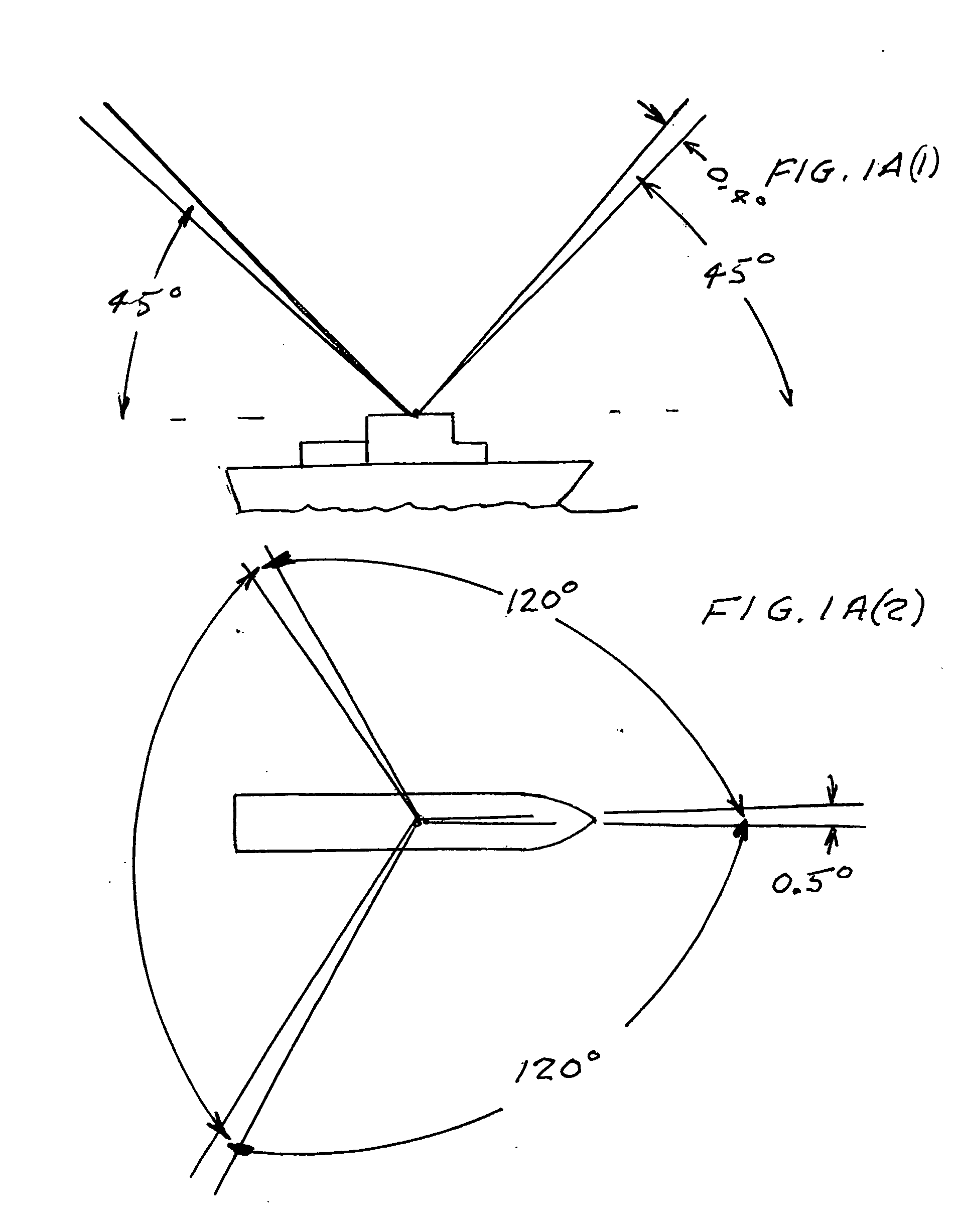Daytime stellar imager
- Summary
- Abstract
- Description
- Claims
- Application Information
AI Technical Summary
Benefits of technology
Problems solved by technology
Method used
Image
Examples
first preferred embodiment
[0030] A first preferred embodiment of the present invention is shown in FIGS. 1A(1) and 1A(2). This is a stellar imaging system useful for day and night accurate stellar navigation for ships. The system is a “strap down” system (i.e., it is mounted or “strapped down” on a platform, in this case a ship) with no moving parts. Three telescopes, separated by 120 degrees in azimuth and directed at 45 degrees in elevation, provide images of stars on three infrared 256×320 pixel cameras designed for operation in the infrared waveband at about 1.6 micron wavelength. The instantaneous field of view of each camera is 0.4×0.5 degrees, which provides a very high probability of imaging stars that are recognized by a computer system programmed with special algorithms, a star catalog, and star pattern recognition software. The camera is a fast frame rate camera operating at frame rates up to 30 Hz with a full well capacity of 5 million electrons, with thermoelectric cooling.
[0031] A second prefe...
PUM
 Login to View More
Login to View More Abstract
Description
Claims
Application Information
 Login to View More
Login to View More - R&D
- Intellectual Property
- Life Sciences
- Materials
- Tech Scout
- Unparalleled Data Quality
- Higher Quality Content
- 60% Fewer Hallucinations
Browse by: Latest US Patents, China's latest patents, Technical Efficacy Thesaurus, Application Domain, Technology Topic, Popular Technical Reports.
© 2025 PatSnap. All rights reserved.Legal|Privacy policy|Modern Slavery Act Transparency Statement|Sitemap|About US| Contact US: help@patsnap.com



